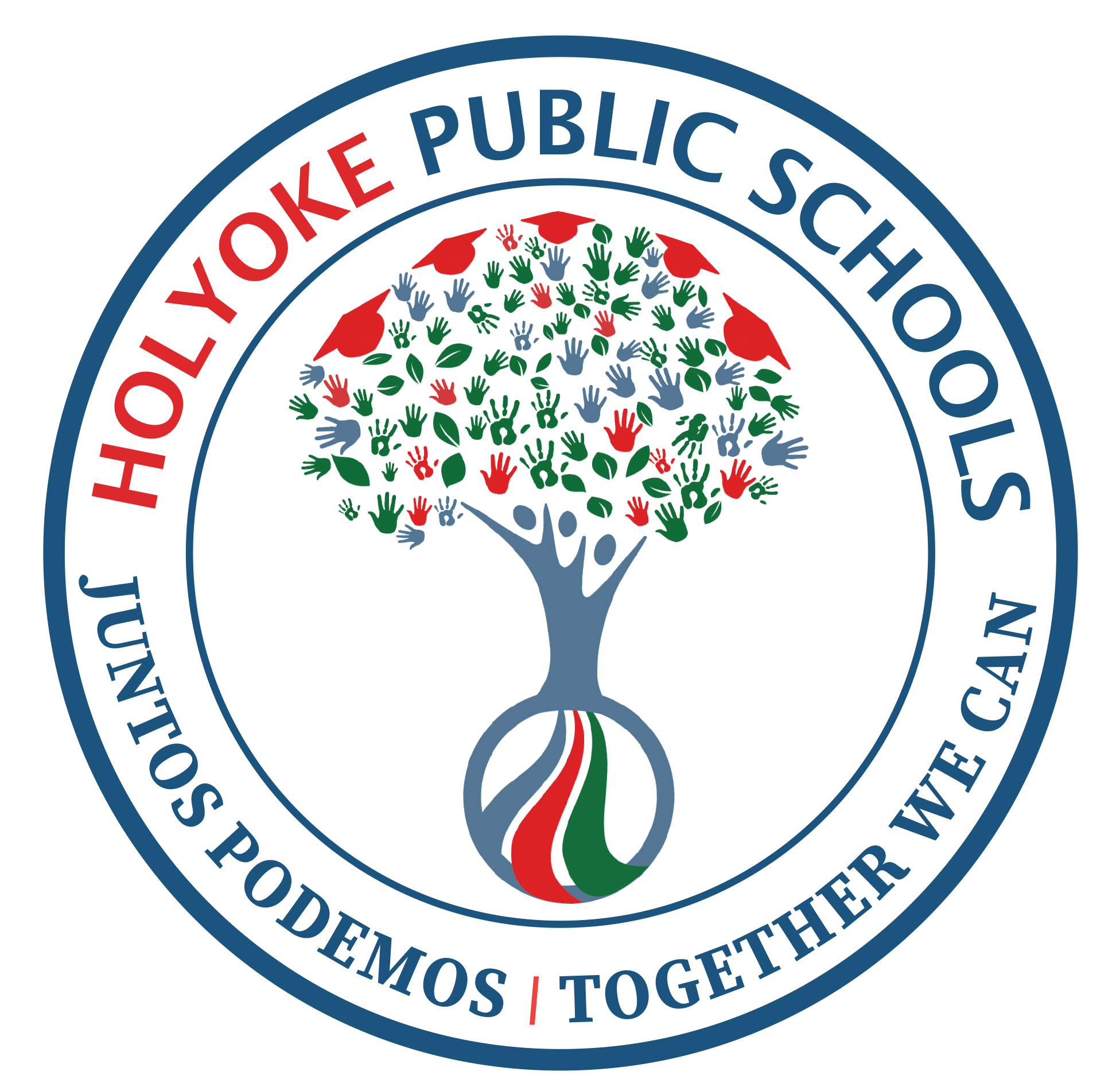Executive Director of School Leadership Jackie Glasheen and Assistant Superintendent Stephen Mahoney presented the HPS Instructional Model to the HPS School Committee in November. Their full presentation can be viewed here.
Ms. Glasheen, who is also an HPS graduate and long-time teacher and school leader, talked about how throughout her career as a leader in Holyoke, outside partners and organizations would ask: “In Holyoke, how do you do school? If I walked into any classroom, what are teachers doing to help kids get smarter? What are they doing to create systems? What are they doing around rigorous instruction?”
She explained how she and other HPS leaders always struggled in the past to answer this question because HPS didn’t have a common approach to teaching and learning.
That started to change in 2017, when the Barr Foundation convened a group of Massachusetts leaders, which included Chief of Strategy and Turnaround Erin Linville among others, to study the issue of finding and keeping high-quality principals. They knew that solving this problem would be crucial to improving student achievement. “Highly effective principals raise the achievement of a typical student in their schools by a range of two to seven months of learning in a single year,” according to the Urban Institute.
HPS later applied for Barr funding to establish a common instructional model and then train school leaders in this model so they could in turn support teachers in their practice to help students achieve at higher levels. After reviewing a number of proposals from outside vendors, a team of HPS district and school leaders narrowed the applicant pool down to four organizations before ultimately selecting Relay Graduate School of Education to provide the training and support school leaders would need to support their teachers.
The first year of the partnership began during the 2021-22 school year and focused on developing principals and assistant principals in the Get Better Faster Scope and Sequence, which is used in hundreds of districts across the country including urban districts. The Get Better Faster system is now the basis of the HPS instructional approach, providing a common language and framework through which school leaders coach teachers to better implement curriculum and deliver instruction to help students achieve.
For the 2022-23 school year, HPS broadened the training approach to include expert teachers (also called instructional coaches), so that the entire leadership team could better support teachers. This year, HPS has added additional training to focus on inclusive schools to better support all students’ success in the classroom, particularly students with disabilities and students who are English Learners. This includes in-person and online professional learning for school leaders and online professional learning for teachers, at the request of HPS teachers.
Over the past three years of this partnership with Relay, school leaders are striving to support teachers through observation and feedback, and through data and planning team meetings. The video displayed at the bottom of this story explains the purpose and approach of instructional walkthroughs, which is one type of observation and feedback.
Teachers have not always understood why their classrooms have been observed so frequently, which can add additional stress to their workdays, Ms. Glasheen said. “Our response is that the efforts are intended to be collaborative and supportive.” Principals work with teachers in advance to help plan lessons and then select a classroom visit time in advance so teachers know when the observations will take place, she explained.
Even with this preparation, however, some teachers have not embraced the frequency of classroom observations.
“The district’s intention and focus was to develop school leaders’ capacity to develop teachers in best practices in instruction,” Dr. Mahoney explained. “In retrospect, we could have avoided teachers feeling like Relay was an inflexible system imposed on them if we had spent more time introducing teachers to the framework while working with principals.”
Even still, overall feedback from leaders and teachers has been overwhelmingly positive, with 86% of leaders reporting through a recent survey that their participation in Relay’s Graduate School of Education leadership programs will make them more effective in their roles. In addition, 76% of leaders said that what they learned will help them center culturally responsive and inclusive practices in their work. In addition, 84% of HPS teachers reported that Relay’s Teacher Professional Education sessions offered high-quality content, with 81% of teachers reporting that what they learned through these programs will help them center equity in their work.
“Relay has a systematic way of getting at the nuts and bolts of teaching which make it understandable and achievable,” said one HPS principal in a recent survey. “They also imbed equity in all that they do.”
